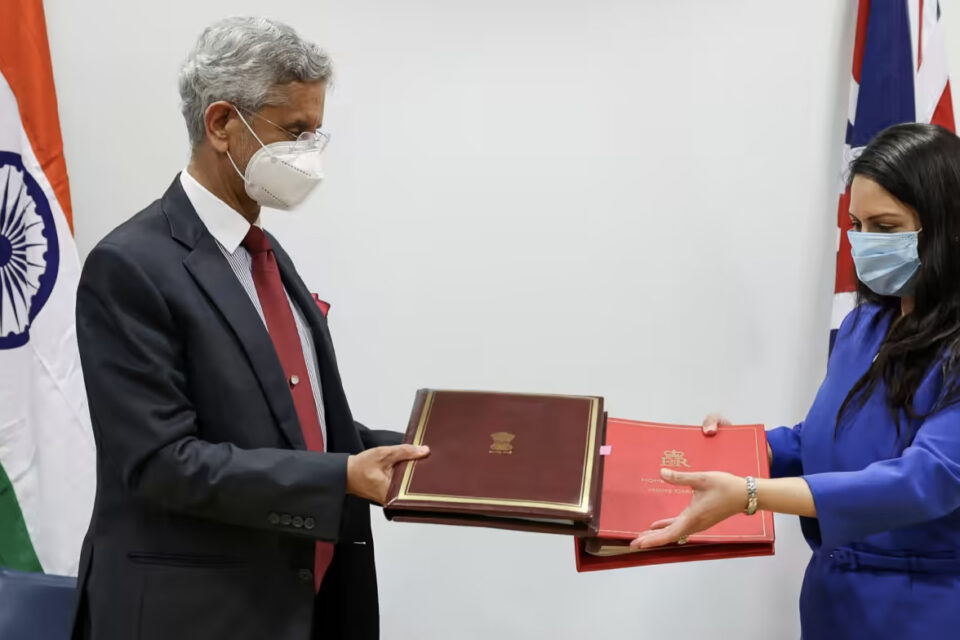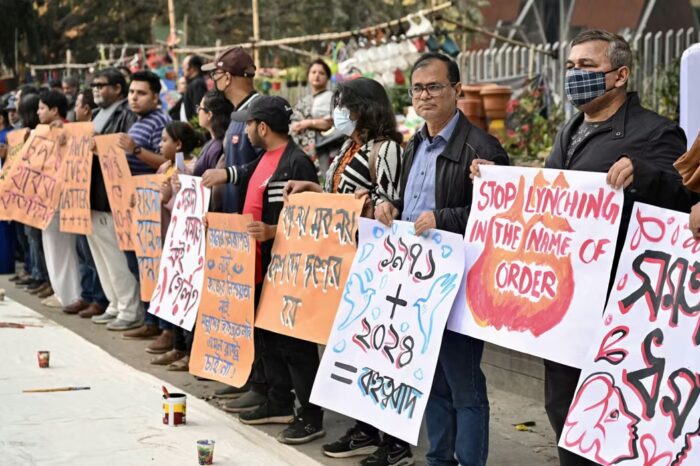Free Trade Agreement between Indian and the UK on the verge of collapse

Indian Minister of External Affairs S. Jaishankar with former Home Secretary Priti Patel. Image by Tom Hammond/No.10 Downing Street
Reports have stated that Free Trade Agreement (FTA), which was supposed to be finalised by Diwali is set to collapse after ministers in New Delhi were left angered by Home Secretary Suella Braverman’s comments on Indian migration earlier.
The Times’ newspaper informed that Indian ministers were shocked and disappointed by the impolite remarks made by Braverman where she expressed her concerns about the FTA, claiming that it was essentially an open-borders policy.
“I have concerns about having an open borders migration policy with India because I don’t think that’s what people voted for with Brexit,” Braverman told The Spectator.
She also mentioned that the Migration and Mobility Partnership (MMP) signed between Indian and the UK last year did not work very well as Indians comprised of the largest number of visa overstayers in the country.
“There’s still a lot of goodwill but if certain individuals are still embedded in the [UK] government it will paralyse the talks,” a source told The Times.
Mobility is a key part of the FTA and other parts including financial services, banking, education, rules of origin on whisky, etc., depend on the deal that both the countries strike in terms of free movement. The Times also quoted a senior UK government source who said, “Suella has gone and pulled the rug from under that mobility ask”.
On the other hand, the Indian High Commissioner to the UK, Vikram Doraiswami who met Prime Minister Liz Truss at Downing Street on Tuesday evening tweeted: “Delighted and honoured to greet the PM Liz Truss at the 10 Downing Street this evening and to seek her guidance to build the very special India-UK partnership in trade, investment, defence and through the Living Bridge.”
According to strategic experts on both sides, if the Diwali deadline for the FTA is met, the result would be much less beneficial than expected, leaving some key factors open for future negotiations.








